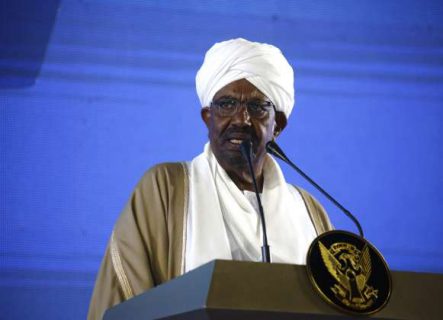Hidden Hands in Sudan

Are the US and its Gulf allies manipulating the new Military Council?
Observers of fast-moving developments in Sudan are still struggling to understand why Gen. Awad Ibn-Auf resigned as head of the new ruling Military Council just one day after he assumed the post, or rather relinquished it to another general, Abdelffatah Burhan.
There can be no doubt that the army’s overthrow of President Omar al-Bashir was a reaction to the popular protests sweeping the country and not an act of benevolence by the military establishment. But why the sudden replacement of Ibn-Auf by his deputy Burhan? Was it because the former remains on the US sanctions list, and was Bashir’s defence minister and vice-president? Or were there other reasons? This is one of the biggest unanswered riddles in the current Sudanese situation.
Another unavoidable question regards the welcome accorded by the opposition Umma Paty led by Sadeq al-Mahdi to the idea of cooperating with Gen. Burhan — who promised to form a civilian government and cut the transitional period from two years to four months and proceeded to sack the head of intelligence.
We have no verified information about this. But reading between the lines, one can sense the smell of behind-the-scenes meddling by the US and its Gulf allies, particularly Saudi Arabia, in the Sudanese crisis.
To elaborate: as commander of land forces, Burhan was one of Bashir’s most trusted generals, and crucially, the most supportive of the deployment of Sudanese troops to fight in Yemen under the command and control of the Saudi/UAE-led coalition.
The US attitude towards the Military Council, meanwhile, went from cautious to openly supportive after the mysterious sacking of Gen. Ibn-Auf and his replacement by Gen. Burhan. Does this mean that the new dispensation in Sudan is set to receive American approval and blessing – and relief from sanctions — in the days to come? Could it even be enlisted in the nascent ‘Arab Nato’?
The Sudanese Professionals’ Association has called for the protests to continue until power is handed to a civilian government and the soldiers return to barracks, declaring that ‘putschists cannot bring change’. This is a responsible stance, reflecting well-founded fears of hidden agendas among the military establishment that has yet to be revealed.
The stance the new Military Council chief takes towards continued Sudanese participation in the Yemen war, for or against, will answer all the speculation and the above questions, and shed light on the political and ideological hue of Sudan’s aspiring new military rulers.
 TheAltWorld
TheAltWorld 
0 thoughts on “Hidden Hands in Sudan”